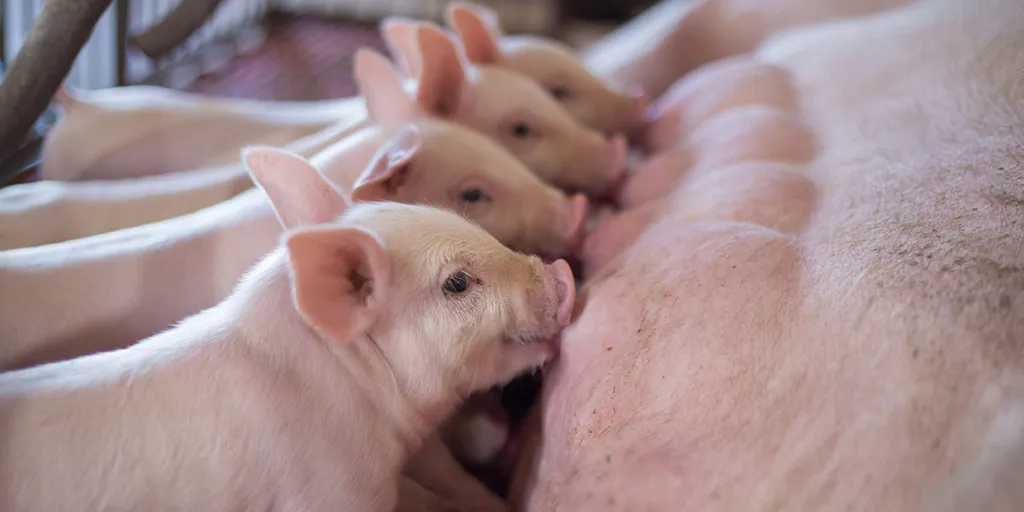In the quest to improve piglet survival rates and sow reproductive health, researchers from the College of Animal Science and Technology at Hebei Agricultural University in China have uncovered promising results using oyster peptides (OPI). The study, led by Xiaofeng Tian and published in the journal *Frontiers in Veterinary Science* (translated as “Veterinary Science Frontiers”), explores the potential of OPI to enhance litter performance and immunological responses in sows during late gestation and lactation.
The research focused on 100 sows, divided into two groups: a control group receiving a basic diet and an experimental group supplemented with 2 mg/kg of OPI. The feeding period spanned from gestation day 90 to day 21 postpartum. The results were striking. “We observed a significant increase in the number of healthy piglets and weaning survival rate in the OPI group,” Tian explained. “This is a crucial finding, as weak piglets and low survival rates are common challenges in the industry.”
The study also revealed that OPI supplementation led to higher levels of immunoglobulins (IgA, IgG, and IgM) in colostrum, which are vital for passive immunity in newborn piglets. Additionally, the expression of key transporter genes in the placenta, such as GLUT4 for glucose, SNAT1 for amino acids, and FABP3 for fatty acids, was significantly upregulated. “These findings suggest that OPI can enhance nutrient transport to the fetus, supporting better growth and development,” Tian noted.
The research further demonstrated that OPI supplementation reduced pro-inflammatory factors (IL-1, IL-6, IL-8, AVPI1) while increasing anti-inflammatory factors (IL-10), antioxidant genes (SOD1, SOD2, GPX2, CAT), and anti-apoptotic genes (BCL2, BCL2L1) in the placenta. This dual action of reducing inflammation and enhancing antioxidant and anti-apoptotic pathways could have profound implications for sow reproductive health and piglet viability.
The commercial impacts of this research are substantial. Improved piglet survival rates and enhanced sow reproductive health can lead to more efficient and profitable pig farming operations. As the global demand for pork continues to rise, innovations in animal husbandry practices are crucial. “This study opens up new avenues for using functional feed additives like OPI to optimize reproductive performance in sows,” Tian said. “It’s a step towards more sustainable and productive livestock farming.”
The findings from this study could shape future developments in the field of animal nutrition and reproductive health. As researchers continue to explore the potential of functional feed additives, the integration of OPI into sow diets may become a standard practice, benefiting both farmers and consumers. The research, published in *Frontiers in Veterinary Science*, underscores the importance of interdisciplinary approaches in addressing agricultural challenges and paves the way for further innovations in the field.

